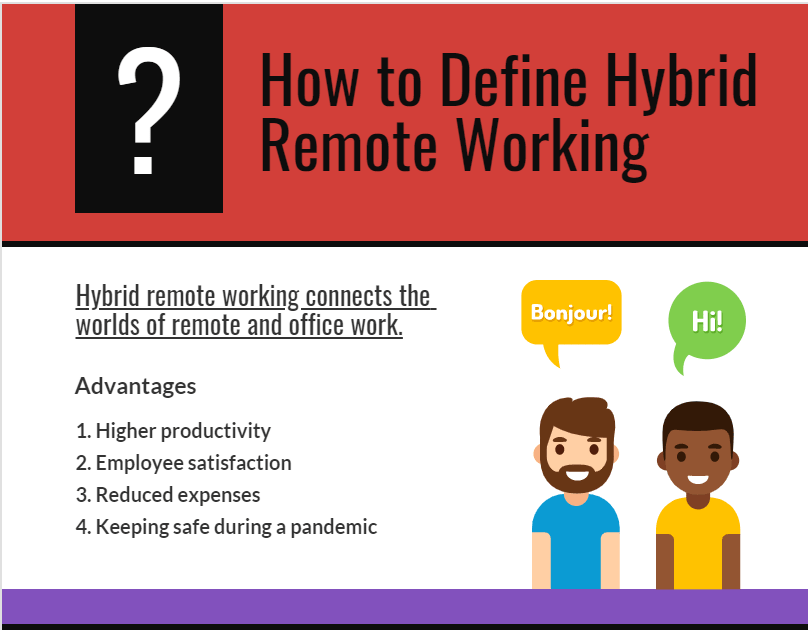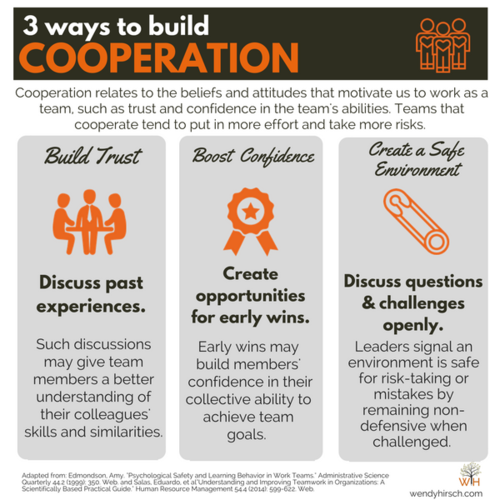Have you noticed that an employee’s performance is suffering? When one member of the team isn't at their best, it can harm the whole workplace.
If an employee has difficulties completing their work to a high standard, there could be an underlying reason. With empathy and support, managers can help their employees get back on track.
To help you pinpoint the cause of poor performance, we’ve put together the following guide.
We’ll tell you about the top six reasons your employee’s work might suffer, along with strategies to turn things around.
1. Your Employees Are Tired
Poor sleep habits can have a direct impact on work performance. This can be especially dangerous for employees who work in industries where physical injuries are a risk.
The report found that well-rested employees are more productive, have fewer accidents, and are happier at work.
If your employees are tired, they may be overworked. You can support them by offering rostered days off and downtime. Try to be understanding of different situations. For example, parents may need time off to care for sick children.
Dissuade them from checking work emails in their free time and save any work-related questions for their shifts.
Some employees may have long commutes, which can make the work week even longer. Consider offering remote or hybrid work arrangements to give them a better work-life balance.
Remote work isn’t always an option, but even two days a week at home can cut out hours spent in traffic and rejuvenate your team.

Of course, you can’t change your employee’s bad habits. But if they’re a valued team member with a genuine reason to be tired, it can be worth supporting them.
2. Your Employees Are Worried About Money
Financial difficulty is one of the biggest causes of stress. If your employees are worried about money, it can lead to poor job performance.
While personal financial problems aren’t the employer’s responsibility, there are things you can do to help. For example, you can pay your workers fairly and offer good benefits such as healthcare, dental insurance, and a retirement plan.
Your health insurance plan may come with an Employee Assistance Program (EAP) to help with unexpected health expenses. Some employers even offer assistance with college tuition.
If an employee has financial stress, they may come to you for assistance. Speak to them about the cause of their stress before helping them find a solution. Is it an unexpected life event, credit card debt, or bills?
What can you do? Are there any opportunities for employees to boost their income? For example, you can offer them overtime. If they’re a good employee, it could be time for a promotion.
You can offer them stock options and give them resources to manage their money. For example, they can go to budgeting apps and sites for financial information. If you’re unsure where to start, check out this Motley Fool review.
Financial stress can be overwhelming, but there are solutions to help your employees get their bank accounts back in balance.
3. Your Employees Are Feeling Rundown
If your employees are feeling flat, they may be rundown, leading to a dip in morale. Schedule breaks throughout the workday and make the most of natural light.
You can offer healthy snacks such as fresh fruits, protein balls, dark chocolate popcorn, and crackers. Each week, have a shared lunch where employees bring a plate of nutritional food.
If you’re supplying snacks for your employees, be mindful of any allergies and dietary requirements. You can also recommend vegan supplements if they’re feeling flat.
Another way to boost morale is by scheduling events. For example, you can get your employees out of the office for a team-building session. When it’s someone’s birthday, host a mini office celebration, and give them rewards for hard work.
Some workplaces have after-work drinks on Fridays and a long lunch on Wednesdays to beat the hump-day blues.
When you mix things up in the workplace, it’ll revitalize your team. With healthier food options and fun events, your employees will be less likely to feel rundown.
4. Your Employees Don’t Have the Skills for the Job
When your employees don’t have the right skills, it can affect work performance. Even with the best intentions, they can make preventable errors and present results that don’t meet the company’s expectations.
You can support your employees with training and ongoing learning opportunities. For example, new team members should be given induction training and supervision from a senior staff member. You can also offer your employees to study more thanks to free online resources websites like StuDocu.
When company processes change, your employees may need further training. And over time, they may need a refresher course. You can offer online courses and group training sessions.
Think about putting together resources that they can access easily. You can work with a video production agency to create how-to videos and tutorials. And you can set up informational sheets on shareable Google Docs.
Your employees may not be aware that their performance is suffering. It’s important to check in regularly with 360-feedback that can help them do their jobs. For example, you can meet with your employees once every three months to discuss their progress and flag any issues.
When you upskill your employees, it's beneficial for both them and your company.
5. Your Employees Don’t Feel Valued
Think about the culture of your company. Do your employees feel valued and rewarded for their effort? When your team feels like their hard work goes unnoticed, they may start to put in less than 100%.
To help your employees feel appreciated, give them recognition when they perform well or meet a specific milestone. For example, if your employee smashes the sales goals for the quarter, you can celebrate their success. This strategy will also help motivate other employees.
If there’s bullying in your workplace, impacted employees may not be able to do their work properly. Companies should have zero tolerance for bullying and workplace harassment. Make sure you’re encouraging a cooperative team environment.

Consider supervising your employees and delegating tasks. When management is available to answer questions, your employees will feel supported. You should always lead by example, and create an environment that’s inclusive and positive.
Don’t forget, your employees need the right tools to succeed. Depending on the industry, the required tools can vary, but your workers won’t feel valued without them.
If it’s an office job, make sure the software is up-to-date, and they have ample office supplies. If it’s a labor job, make sure your team has the right safety equipment.
6. Your Employees Are Distracted
Life is full of distractions, and little interruptions can lead to a lack of productivity. If distractions are impacting the workday, try to remove the cause.
For example, if your team members are scrolling social media instead of doing their work, encourage them to switch off. Or, if they are excessively checking their phones during work hours, ask them to leave their devices in a drawer.
You can introduce to your task management strategies that will help them minimize distractions. If they have trouble concentrating, you can suggest they focus on one task at a time.
There are tools such as the RoundPie that can boost productivity. When you use the time management solution, your team can track their work habits and control their workday. These types of tools empower your team without the need for micro-management.
Your processes may also be causing your team to become distracted. For example, too many unnecessary meetings and long emails can be interruptive and break their momentum.
You can also offer your employees to work in a different workspace. Let’s say that one of your employees is based in Florida in the USA, if they are working from home, they might be distracted by external factors (family, street noises…).
Why not offer them to work in a coworking space in Miami to help them focus more on their work and less on their home distractions? It is known that better workplace environments can contribute to solving distraction problems.
When Your Employees Job Performance is Suffering
If your employees aren’t performing as they should be, you may be wondering why.
There are several reasons why job performance can suffer. For example, your employees may be feeling tired or rundown. You can encourage them to take breaks and have flexible work options to reduce their daily commute.
Your employees could be worried about money, or they may not have the right skills for the job. If this is the case, upskilling and ongoing support could be the solution.
To help boost productivity, you can make sure your employees feel valued and the workplace is free from distractions.
With these simple tips, you’ll be able to create a positive team environment.
Not quite ready to get back to work? You can read more tips on the RoundPie blog.
About the author:
Guillaume Deschamps is a digital marketer focused on handling the outreach strategy at uSERP and content management at Wordable. Outside of work, he enjoys his expat life in sunny Mexico, reading books, wandering around and catching the latest shows on TV.
What would you like to know and what would be the best way to share this information to you? What is the best tips & tricks, what workaround do you use? We'd really appreciate your insight on these ones to make our integrations better, more productive and much more efficient. Comments, tweets are always welcome.